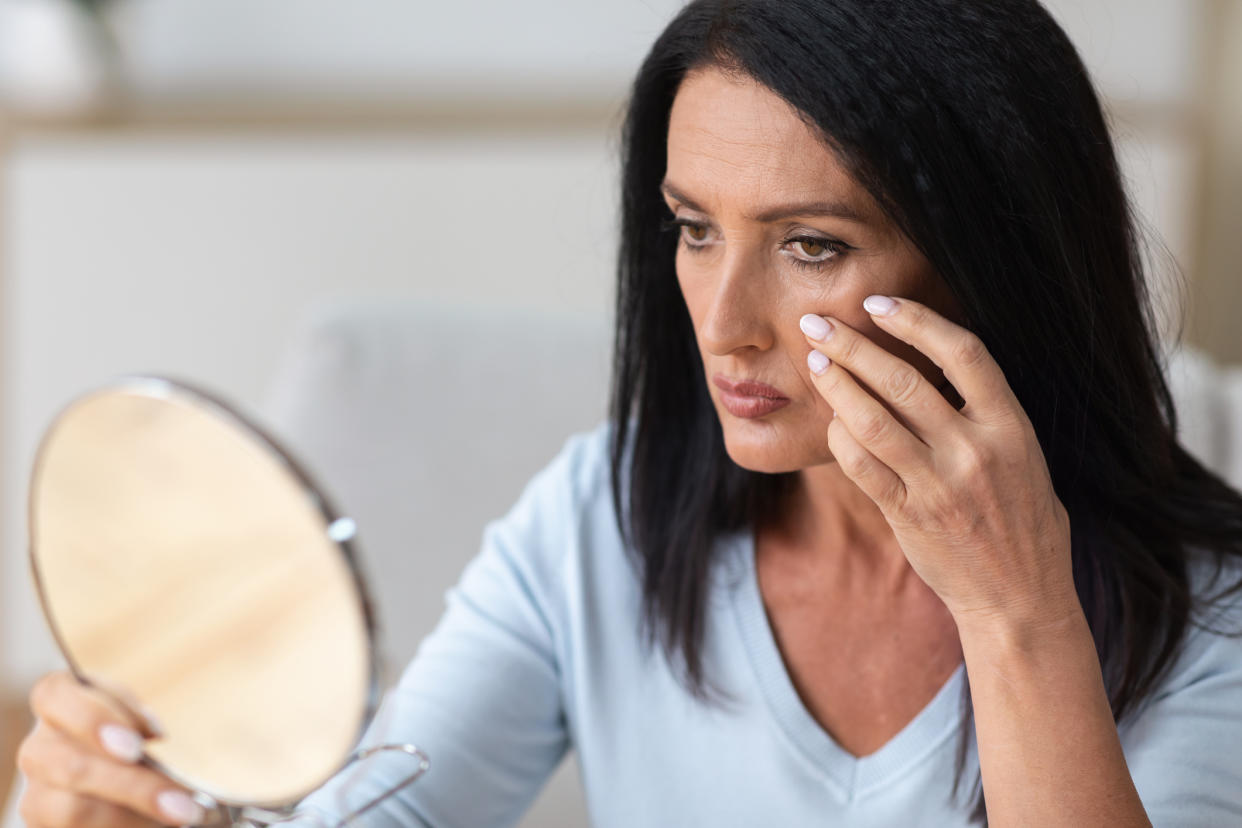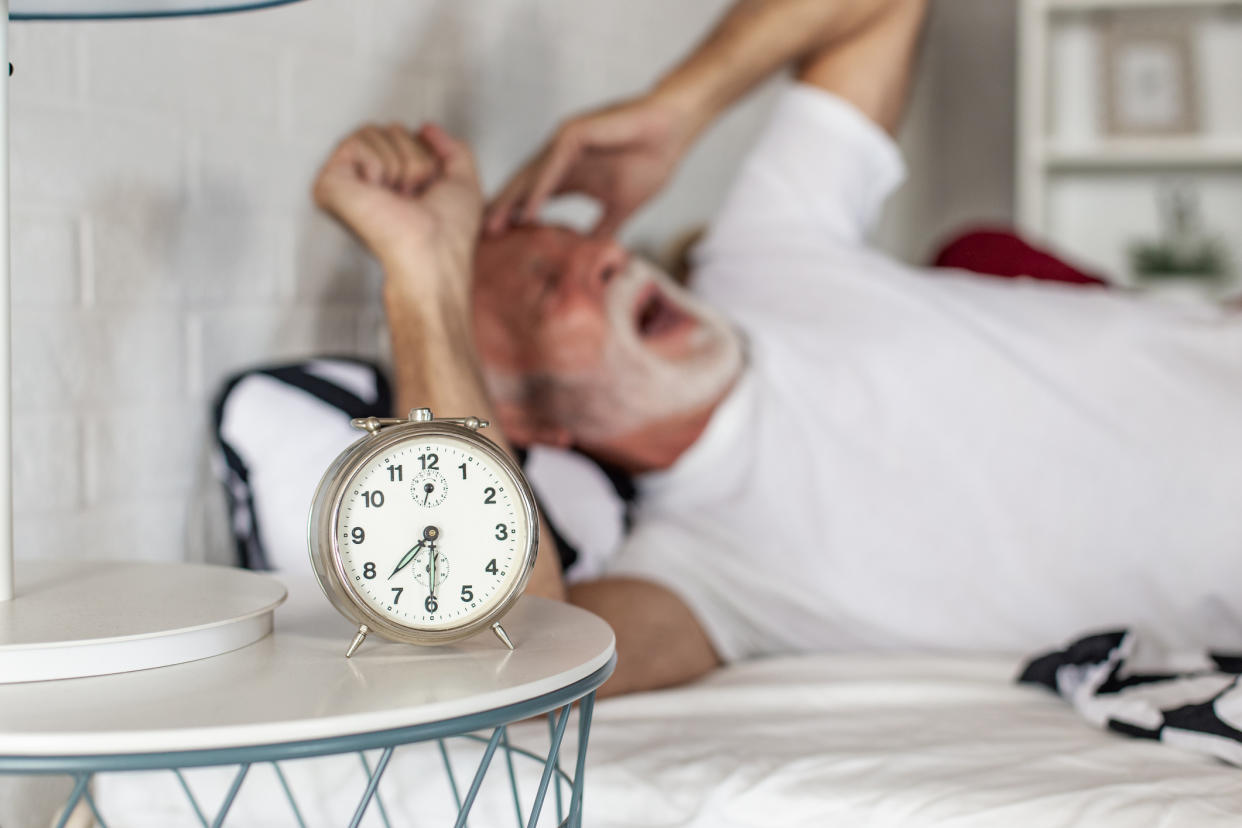Bad night's sleep linked to feeling 'decades older'

We know we should be striving to get a good night's sleep for the benefit of our physical and mental health, but it's not always easy.
Now, it seems that poor sleep in the over-50s can not only make you feel drowsy through the day, it could also bring on feelings of old age.
According to a new study, scientists have uncovered a notable association between sleeping badly and feeling older in general. Furthermore, inadequate sleep patterns are also linked to more negative perceptions of ageing.
The research, carried out by the University of Exeter and published in the journal Behavioural Sleep Medicine, found a link between feeling mentally and physically older, and getting poor nights' sleep.
What's more, feeling older than your age was linked to an impact on physical, mental and cognitive health, such as having a poorer memory, less energy, and decreased motivation.
In the study, researchers asked 4,482 people aged 50 and over to take cognitive tests and complete lifestyle questionnaires.
Read more: How to get back to sleep when you wake up feeling stressed

Participants answered a survey on their sleep twice, one year apart, which included questions about negative changes associated with age, like poor memory and more dependence on others.
Researchers noted many participants commented on their relationship with sleep as part of standard questionnaires within the study.
One said: “How I feel fluctuates widely depending on my sleep. I feel great if I get six hours so about half the time I feel younger and half the time I feel older.”
Another comment read: “I have chronic pain problems and get very little sleep which impacts on my life quite a lot.”
Lead author Serena Sabatini, of the University of Exeter, said: “Our research suggests that poor sleepers feel older, and have a more negative perception of their ageing.
“It could be a sign that addressing sleep difficulties could promote a better perception of ageing, which could have other health benefits.”
According to Sabatini as we age, we all experience both positive and negative changes in many areas of our lives.
"However, some people perceive more negative changes than others," she explains.
"As we know that having a negative perception of ageing can be detrimental to future physical health, mental health, and cognitive health, an open question in ageing research is to understand what makes people more negative about ageing.
"Our research suggests that poor sleepers feel older, and have a more negative perception of their ageing."
Read more: Have you got BNB (Busy Night Brain)? Here's how to reclaim sleep
While further research is needed to study this association between perception of ageing and poor sleep, researchers believe one explanation could be that a more negative outlook influences both.
"However, it could be a sign that addressing sleep difficulties could promote a better perception of ageing, which could have other health benefits,” Sabatini adds.

The link between ageing and sleep hasn't only been uncovered in the over 50s either - research released earlier this year found new mothers may age more due to sleepless nights in the first six months after birth.
UCLA scientists found too little sleep in the first half-year of a new child's life can add up to seven years to a woman's "biological age", which can differ from chronological age.
A greater biological age can come with a greater risk of disease and earlier death.
DNA analysis found the biological age of mothers who slept less than seven hours a night at the six-month mark were three to seven years older than those who slept for longer than seven hours.
Getting in the right number of hours doesn’t only improve our perception of ageing, it can also provide a whole wealth of other health benefits, such as fighting off obesity, Type 2 diabetes and high blood pressure.
Read more: Allergies keeping you awake? Here are the secrets of a sneeze-free sleep
Turns out going to bed at the same time could have health benefits too, with scientists previously discovering that sticking to a regular bedtime could be very important for our physical wellbeing.
Recent research, by University of Notre Dame, revealed that diverting from our usual bedtime by even a few minutes could increase our risk of heart disease.
A “normal bedtime” is defined as somebody who falls asleep within one hour each night. For example, if somebody was to fall asleep between 10-11pm each night, this would be seen as a routine.
Scientists found that going to sleep just one minute outside of your usual sleep window increased resting heart rate for that person all night and into the next day.


